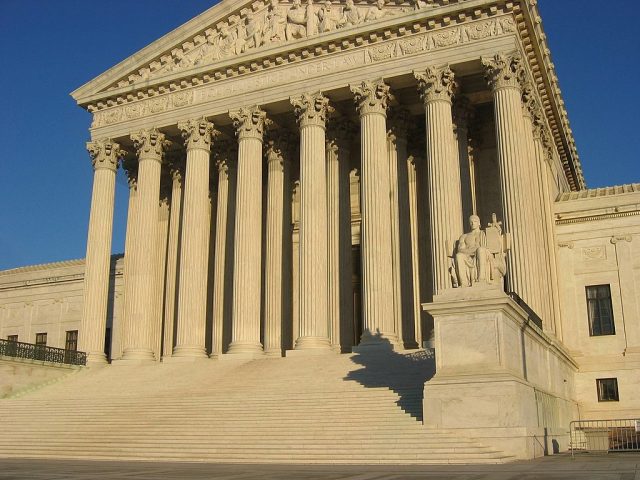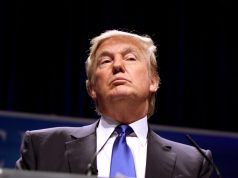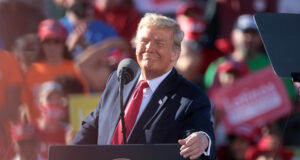On Wednesday, the Supreme Court will hear arguments over whether the Patent and Trademark Office (PTO) violated the First Amendment when it refused the registration of a political slogan on T-shirts that criticizes former President Donald Trump without his consent.
California-based attorney Steve Elster’s bid to make “Trump too small” a registered trademark for use on shirts he sells mocking the former president has become the latest in a series of Supreme Court clashes that pit trademark law against the First Amendment.
In 2017, Elster wanted to get the phrase “Trump Too Small” printed on T-shirts but when he sought to trademark the slogan, he was denied by the PTO, and the Trademark and Trial Appeal Board upheld the decision because the phrase identified Trump without his consent.
The phrase originated from an exchange on the 2016 debate stage between Trump and Sen. Marco Rubio (R-Fla.) The Florida senator made a crude joke in reference to the size of the former president’s hands.
Watch the infamous moment that started it all:
The decision was reversed by a federal circuit court, noting that Elster’s trademark goes to “the heart of the First Amendment,” and held that the government has no plausible “interest in restricting speech critical of government officials or public figures in the trademark context.”
The Justice Department arguing on behalf of Katherine Vidal, under secretary of commerce for intellectual property, eventually appealed the case up to the Supreme Court, arguing that the Lanham Act, which is a federal statute aimed at protecting intellectual property in trademark designations, gives the PTO constitutional authority to block Elster’s trademark request, according to Fox News.
“When registration is refused because a mark ‘[c]onsists of or comprises a name…identifying a particular living individual’ without ‘his written consent,’ ‘[n]o speech is being restricted; no one is being punished,’” the DOJ’s petition to the high court says.
Fara Sunderji, partner at international law firm Dorsey & Whitney, says, “Despite outward appearances, this case is really not about Trump or the size of his policies or (body parts).”
“Will this decision restrict speech — namely political criticism in a time where the country is so divided as the 2024 candidates are starting up their engines? The trademark applicant, Mr. Elster, would have us believe that, yes, that is what is at stake,” says Sunderji.
“So, what is the potential outcome? If the Court upholds the Federal Circuit’s opinion, will the USPTO be inundated with trademark applications for every political phrase containing a candidate’s name in the 2024 election? Probably not. Will daily life be flooded with t-shirts containing slogans with all the 2024 candidates’ names by unrelated third parties? I hope not,” concludes Sunderji.







Hopeful for Victory
A terrible waste of courts time and taxpayers money! All the while the nation is being destroyed!